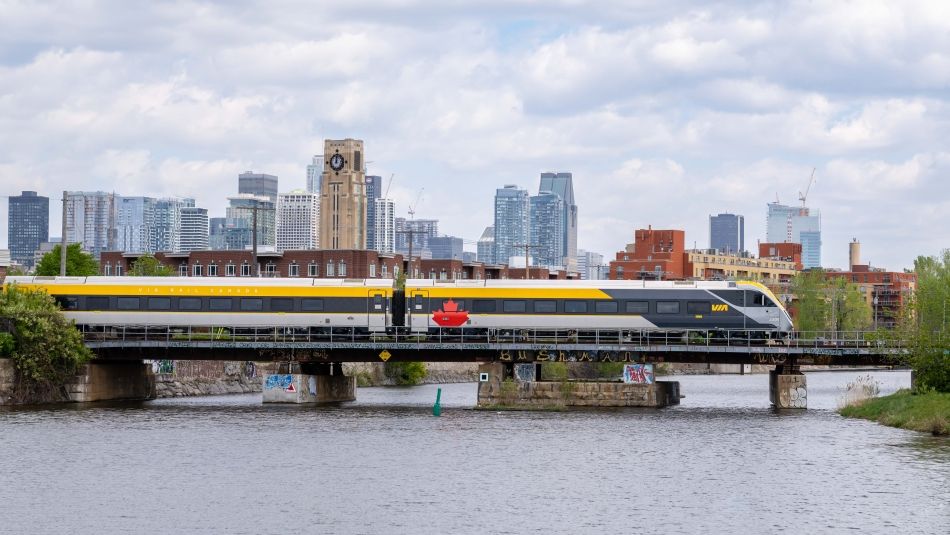
Share
VIA Rail’s recent changes to its baggage policy highlight a shift in priorities, making eco-friendly travel more challenging in Canada.
Passenger rail travel remains the most environmentally-friendly mode of intercity transport, crucial for many remote and isolated communities. VIA Rail serves as a vital link for those needing to travel for family, work, school, and health care.
Passengers often carry significant luggage: a young doctor relocating to a remote community, a student returning home for the summer, a family of new immigrants starting their lives in Canada. These scenarios reflect the diverse needs of VIA Rail’s passengers.
However, under VIA’s stringent new baggage policy, these passengers face hefty fees or outright travel denial.
Historically, VIA Rail had a generous baggage policy, balancing capacity with the needs of Canadian travellers.
So, how did we stray so far?
The reasons are two-fold.
First, the federal government has instructed VIA to prepare for the privatization of the Corridor in Ontario and Québec. Starting June 10, passengers must pay for baggage and parking at some stations. And brace yourselves—more fees are coming.
Secondly, despite advice from both unionized and non-unionized employees, as well as passenger advocates, VIA executives chose not to include adequate baggage space in the new Siemens trains.
This decision underscores a disconnect between VIA’s executives and the needs of their passengers.
Take bicycles, for instance. Rail and bicycle travel are a perfect match for promoting green travel. Yet, VIA’s bicycle policy is now more restrictive than ever, banning bikes from the Corridor despite them being accepted on transcontinental and remote trains.
This means a passenger traveling from Ottawa to Winnipeg with a bike will be forced to drive or fly between Ottawa and Toronto, increasing carbon emissions. Students wanting to take their bikes from London to Kingston are also out of luck, left to emit carbon on Highway 401.
VIA’s restrictive baggage policy has driven students back to cars, planes, and unregulated bus companies with questionable safety standards.
The time for action is now.
The Get Back On Track campaign advocates for reinstating baggage cars in the Corridor, connecting seamlessly with transcontinental trains, and abolishing the draconian baggage policy.
Unifor believes that VIA Rail and the federal government should foster adaptive and innovative ways to promote rail travel—the greenest mode of intercity transport. This includes creating baggage policies that cater to Canadians' needs and making travel more affordable.
Take action and help get Canada back on track.


